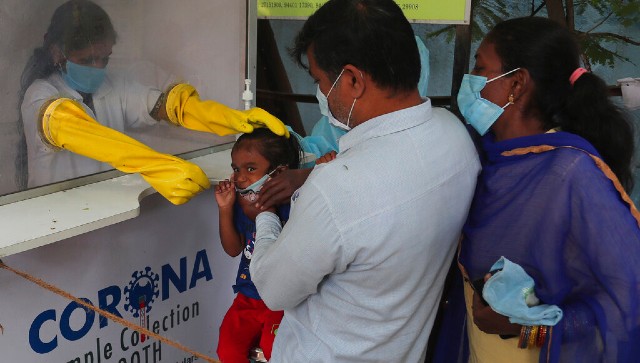Much has changed since the first case of COVID-19 was confirmed in India. The country has had one of the strictest — perhaps most draconian — lockdowns, during which cases kept increasing. Given the massive impact on the economy, it was necessary to ease the lockdown in phases. The initial days were full of anxiety, with predictions of a massive toll and COVID-19 testing lagging. Around six months into the pandemic, the picture was not as grim as some may have feared. While the human cost was significant — almost one lakh confirmed deaths due to COVID-19 by the end of September — it was significantly lower than the millions of deaths initially projected. At the same time, India began doing much better with regard to testing. With support from the private sector, testing was scaled up, which resulted in a significant drop in test positivity rate (TPR): the proportion of positive results out of total samples tested. Soon, there was progress on the vaccine front, with promising results from multiple clinical trials for different vaccine candidates; those that completed Phase 3 trials were given emergency usage approvals in the US and UK. In a sharp contrast to a year ago, the outlook was much more optimistic — particularly in India as the number of daily cases began steadily declining. After much anticipation, the Drugs Controller General of India (DCGI) finally gave emergency usage authorisation to two vaccines: Covishield (Oxford-Astrazeneca) and Covaxin (Bharat Biotech). While legitimate concerns about the process have been raised and the approval given to Covaxin remains controversial, that is an article for another day. Those issues notwithstanding, India has at least one vaccine with good efficacy data. So, with cases continuing to decline and vaccines being available, the country seems to be in good shape. But a few caveats apply. First, the vaccine rollout has been slow. While the government may celebrate being the quickest to administer 7 million vaccines, the reality is that the pace is unimpressive given the country’s massive population. Even at half a million vaccinations per day — higher than the current overall daily average — it would take more than six years to vaccinate the entire population. Of course, this is a back of the envelope calculation that does not take into account the significant upscaling of the inoculation process. But the questions remains: When? Each day that passes without upscaling results in huge opportunities being lost. Second, there has been a slightly worrying uptick in daily cases. Of particular concern are states such as Maharashtra and Kerala. It is too early to say whether this is a sporadic fluctuation or early sign of another “wave”. Regardless, India needs to get as many jabs in as many arms as quickly as it can. The government must also resist the ‘make haste, but slowly’ mindset with regard to administering vaccines. As with testing, it simply lacks the capacity to inoculate at the pace required. The government would do well to rope in the private sector, even as it continues to shore up its own efforts. Even if significant numbers of the populace in urban areas have already had COVID-19 — as some experts have speculated — that so-called ‘natural herd immunity’ could fade with time or due to new variants. It is important to reiterate that the argument of ’natural herd immunity’ remains largely a thereotical one, and cannot be relied on to mitigate the disease, especially when India has millions of doses at the ready. It is also likely that the vaccines will need to be ‘adapted’ to meet certain strains. Needless to say, all non-pharmaceutical interventions, such as masks and social distancing, must be continued (and imposed strictly). It is important that the response is calibrated as per the patterns and trajectory of the pandemic. Hence, large-scale testing must continue. It is extremely important that the data remain reliable — this is crucial in detecting any change in patterns early and could avoid many deaths provided swift action is taken. The numbers being fudged could lead to bad outcomes. For example, experts praised Bihar, which, after coming in for criticism , showed impressive scaling-up with regard to testing. However, a recent investigation by The Indian Express revealed that a significant number of the COVID-19 testing records was fudged: many mobile numbers were fake or belonged to people who were simply never tested. Al of these results were shown as negative, which makes for good optics but does not adequately reflect the situation on the ground. Some officials suggested that such methods were resorted to in a bid to reach daily testing targets. In such a context, the reliability of data comes into question, which leaves the government flying blind. Thus, reliable data, even if it makes for bad optics in the short run, is necessary to avert a potential catastrophe.
It is important to reiterate that the argument of ’natural herd immunity’ remains largely a thereotical one, and cannot be relied on to mitigate the disease, especially with millions of vaccine doses ready
Advertisement
End of Article


)

)
)
)
)
)
)
)
)



